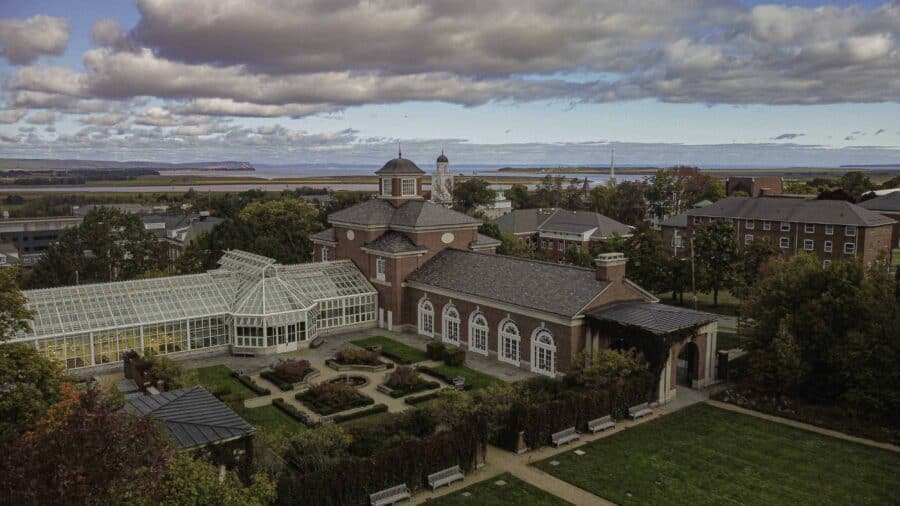
Growing Spaces
The Acadian Forest Region consists of a multitude of ecosystems with a wide array of light, temperature, chemical, biological, geological, and hydrological conditions – all of which student and faculty researchers can replicate here.
Phytotrons, growth chambers, and mesocosms provide researchers with highly adaptable systems to understand the effects of environmental impact and climate change on ecosystems. The Wetland Research Laboratory is specially equipped for the study of our unique Gulf of Maine/Bay of Fundy environment.
Phytotrons
PHYTOTRONS (GLASSHOUSES)
When we need to study plants in particular growing environments, we create the precise conditions we require in our phytotrons, which are glasshouses that enable control of temperature humidity, atmospheric CO2, and day length.
Geothermal cooling allows greater control of temperature, humidity, and atmospheric composition than conventional fans and vents. The air-handling system can scrub ethylene, nitrous oxides, and other contaminants, including fungi, from the atmosphere and precisely control fresh air exchange.
Researchers can replicate experiments in six identical and independent glasshouse compartments (255 sq ft. ea.). Environmental conditions are computer-controlled to either pre-programmed values, to simulate external conditions on-site (by interfacing with an external weather station), or to simulate conditions at a remote location.
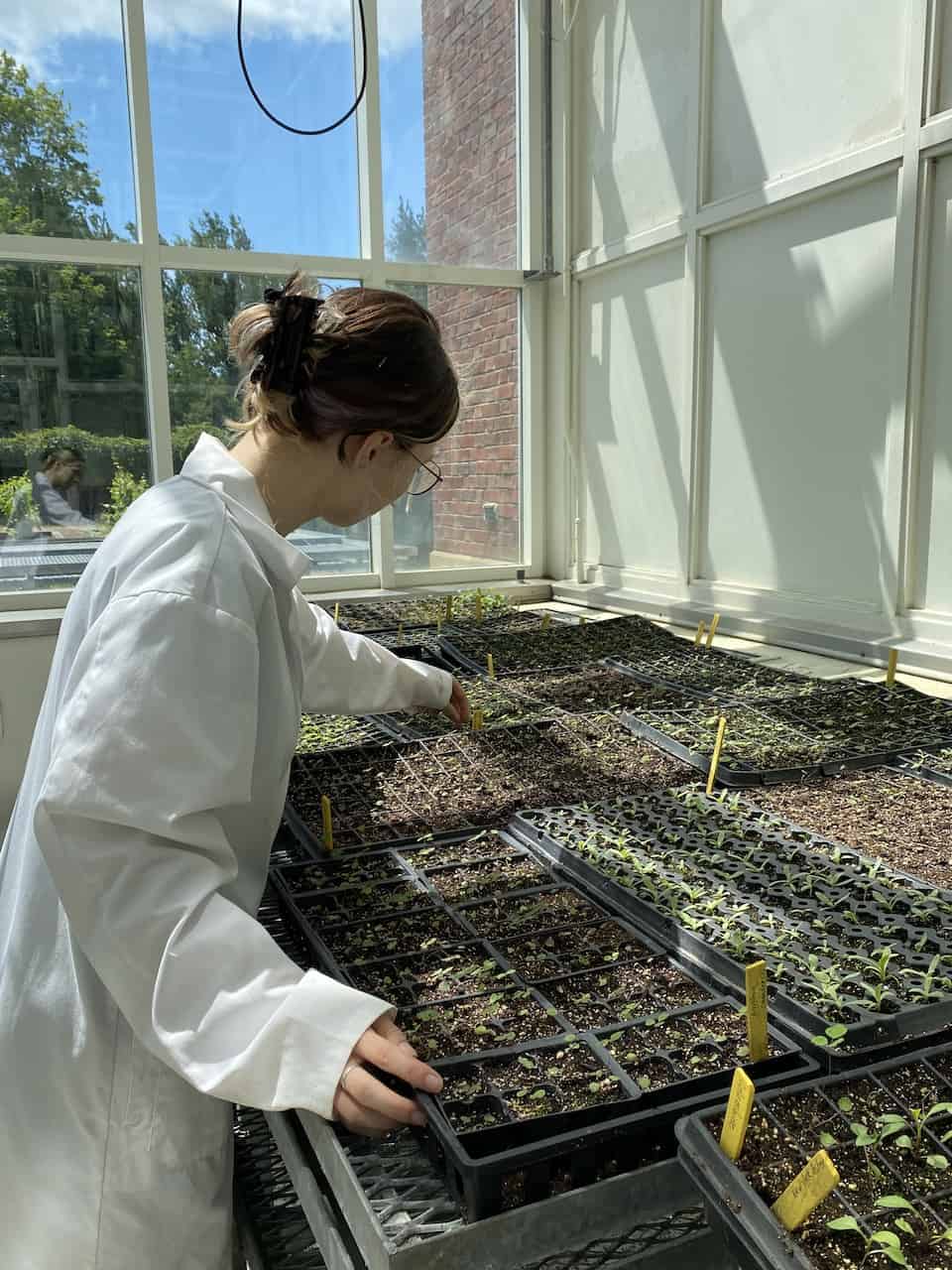
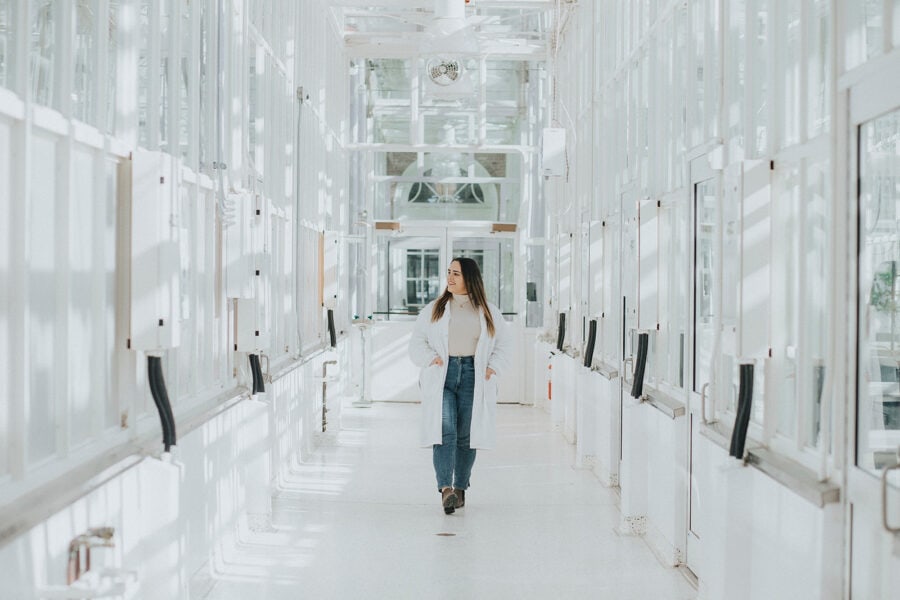
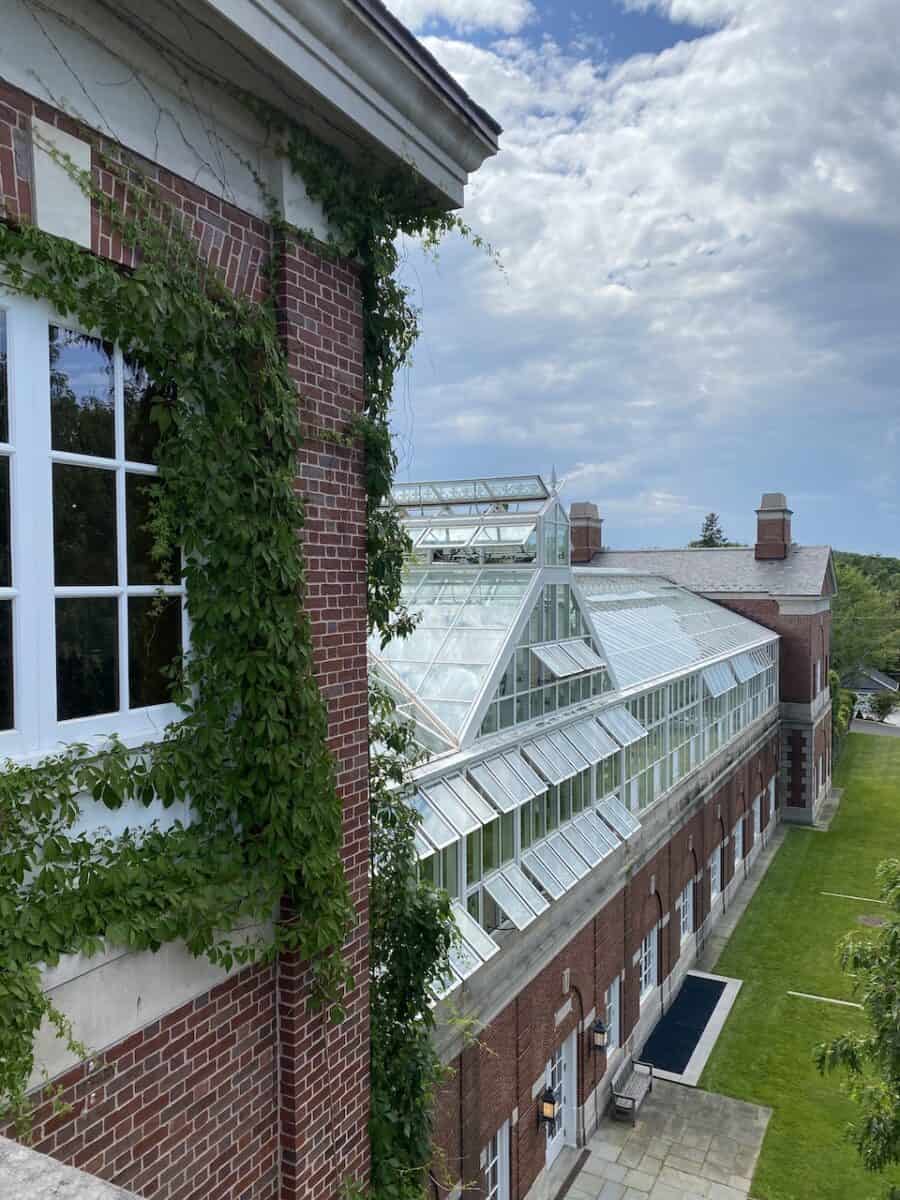
Wetlands Research
WETLANDS RESEARCH LABORATORY
Wetlands are critical to our environment, providing animal and plant habitats, filtering contaminants, and reducing flood risk. We simulate working wetlands in our glass-enclosed Wetlands Research Laboratory (55 m2).
The lab contains three custom-made tidal mesocosm benches equipped with recirculating water to simulate tidal or seasonal flushing of mudflat and marsh ecosystems. Using computer controls, researchers can simulate a wide range of ecosystems from coastal zones to deep waters and study the dynamic processes that shape these ecosystems. For example, researchers can analyze interactions among macrophytes, benthic micro-organisms, and grazing invertebrates. Special mud flumes are used to simulate sediment deposition. Benches can also be used for physical modelling of larger-scale ecosystems.
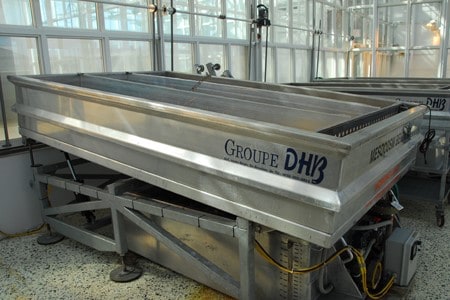
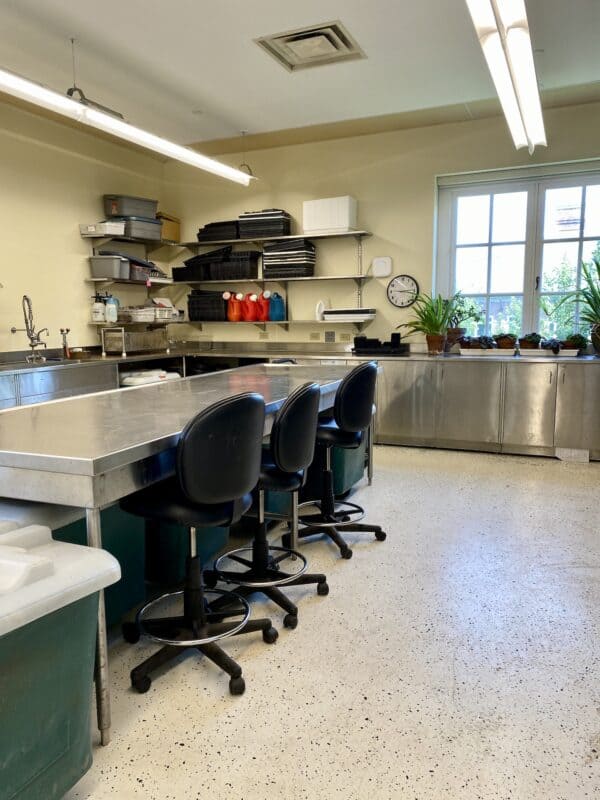
Growth Chambers
Additional spaces for controlling and simulating climate conditions are our eight Environmental Growth Chambers in the newly renovated common laboratory.
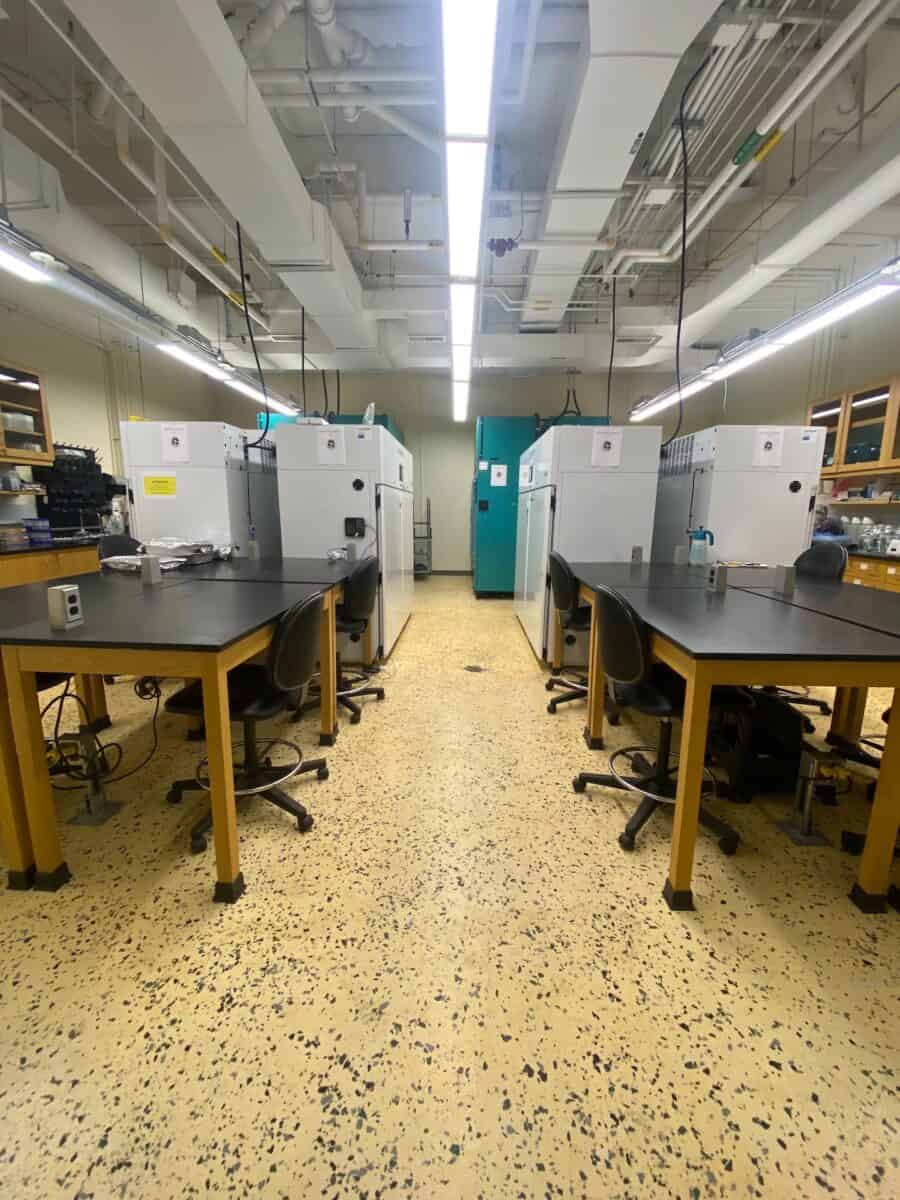
There are four Conviron Model GEN2000 units installed in 2025. These new units double the capacity from our four original Conviron Model E15, 1.7 m2 units.
The growth chambers provide precise control of environmental conditions, including temperature, photoperiod, light intensity, humidity, and CO2 levels. Growth chambers let plant scientists study the development of plants under different environmental conditions, entomologists experiment with insects, or allow environmental scientists to create specific environmental conditions for their experiments.
Experimental Garden
Our Experimental Garden is dedicated to research, mostly during the active growing season, yet sometimes for long-term phenology studies. Researchers use this space, located just outside the research greenhouses, when they want to grow their plants under natural environmental conditions. This garden contains 12 self-contained beds designed for flexible usage. Some of the present uses include various research trials, propagation of plants for the botanical gardens, and outplanting plants produced by the seed bank.
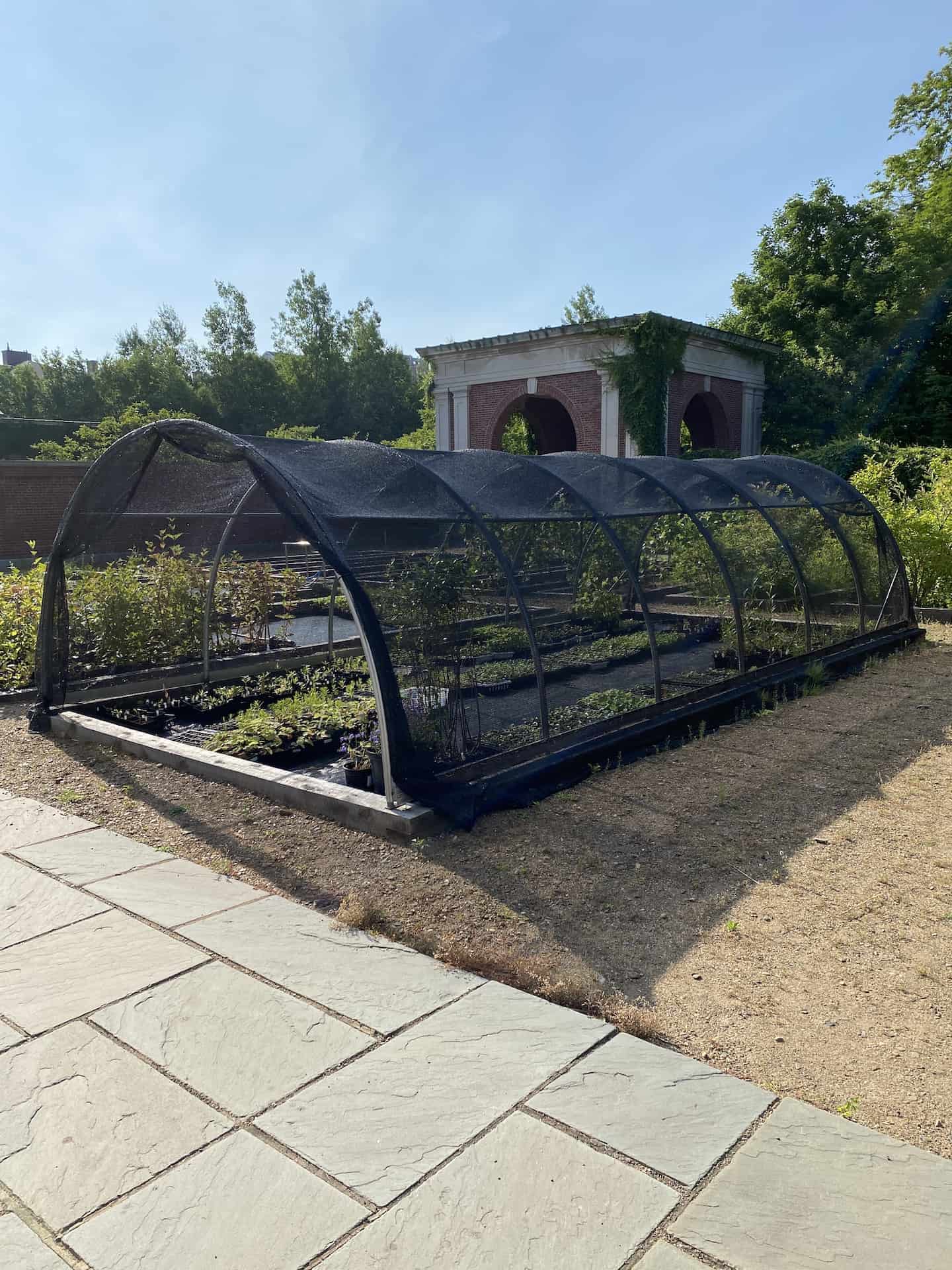
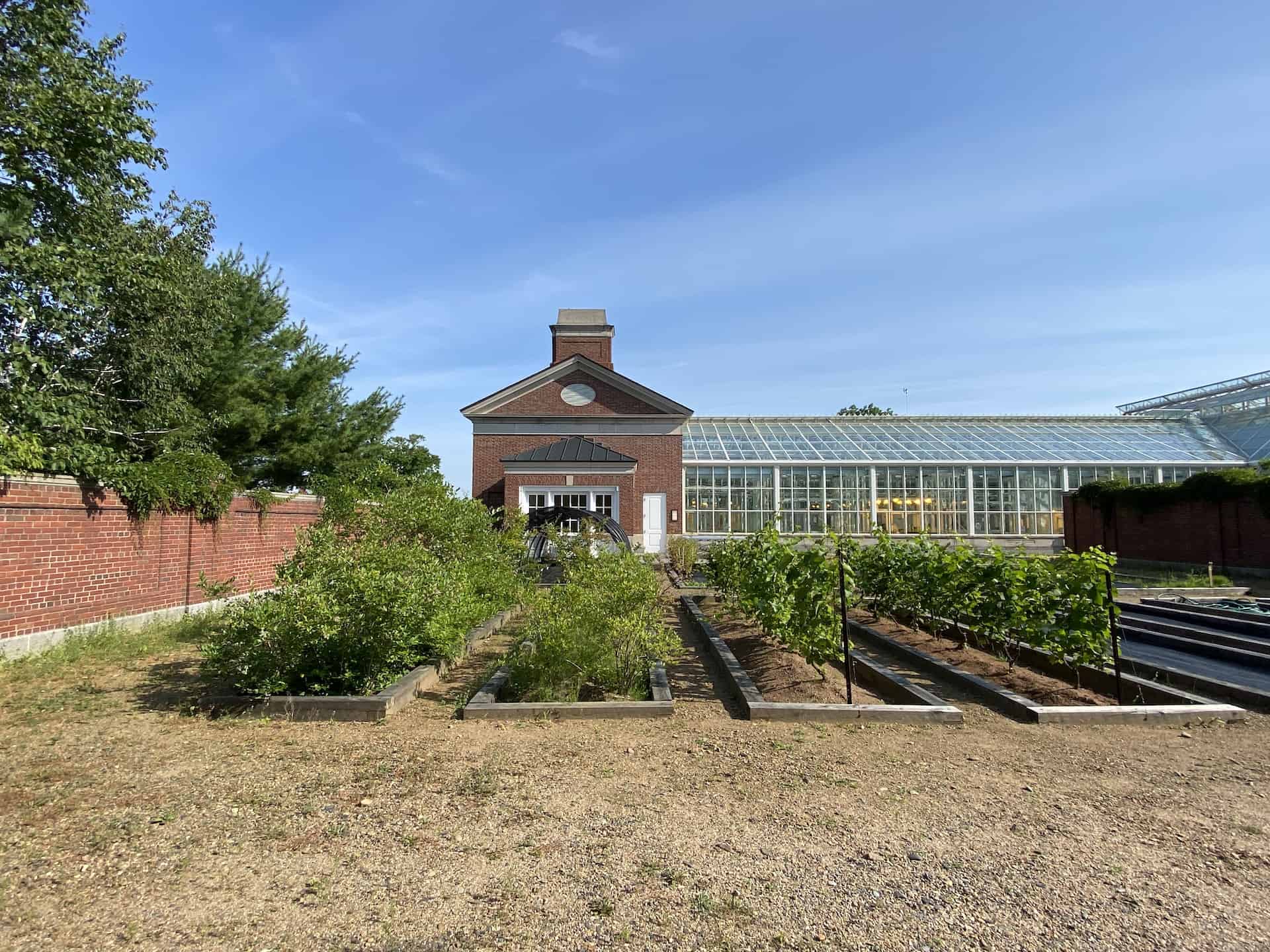
For further information on research opportunities, contact Sarah Hines, Research Manger, K.C. Irving Environmental Science Centre.
Environmental Study at Acadia

Students and faculty at Acadia approach environmental study and research in a truly multidisciplinary fashion. Laboratories in the K.C. Irving Environmental Science Centre are home to biologists, chemists, engineers, and environmental scientists who work closely with historians, political scientists, and sociologists as well as community development and business professors. Acadia’s network of external research stations provides students with a wide range of rich learning opportunities supported by highly regarded faculty, including a number of Canada Research Chairs.
Acadia University offers four specific programs of study focused on the study of the environment – Environmental Science, Environmental and Sustainability Studies, Biology, and Environmental Geoscience.


 Acadia University
Acadia University